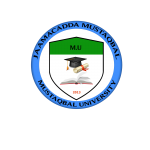Bachelor of Human Nutrition and Dietetics

The department offers undergraduate and postgraduate studies in Nutrition and Dietetics, and Nutrition Science in face to face and distance learning programs.
Aim of the course
The overall course aim is to produce an officer to be in charge of nutrition and health programmes at District, region and nationwide levels and who can articulate matters of nutrition in planning and evaluation of development activities.
Course competences
By the end of the programme the learner should be able to: –
- Mobilize and guide the community on how to identify and provide solutions to their nutritional problems.
- Sensitive and work with communities to identify, plan and implement nutritional interventions using available resources
- Collect, process and use nutritional data to plan, implement, monitor and evaluate community-based nutritional and health programmes.
- Conduct Nutritional/health Education and counseling with emphasis on the feeding habits, care of vulnerable groups in homes, communities and institutions.
- Collaborate with other agencies and groups to assess, monitor and improve the nutritional impact of development programmes in the community.
- Plan and supervise the preparation and administration of nutritional care to patients/clients, evaluate response to the care and give relevant advice/modify accordingly.
- Sensitive and train extension staff such as those in health, agriculture, social services and education sectors to better conceptualize nutrition problems in the community and advocate actions for improvement
- Conduct a community diagnosis and operational, research, and keep up to date with professional knowledge and development
- Assist in therapeutic process while dealing with individuals and groups with special nutrition and dietary needs and, in emergency situations
Program Duration
This is a four-year program. Every academic year consists of two 24-week semesters of 20 weeks for theory and 4 weeks for practical field attachment.
Admission Requirements
Admission criteria in health training programmes have far-reaching implications in education and training processes and the outcomes of such programmes, thus, the graduates and the quality of health services. Consideration of the admission requirements to the Community Health Nurse programme is in light of the prevailing health situation in Somalia.
Candidates for direct or in-service admission into the course programme must possess the stipulated qualification requirements in Somalia, and the equivalent, especially in neighboring countries.
Any student seeking admission from any MU Department of Nursing to pursue the course should fulfill the following requirements:
1. Be not younger than 18 years of age.
2. Submit secondary leaving certificate with minimum average marks of not less than 60% from recognized school and umbrella and passed the Somali Government centralized exam.
3. Application for admission.
4. Pay the registration and enrollment fees as per required.
5. Fill the application form fittingly.
6. Successfully pass the university entrance examination,
7. Bring the following documents with you:-
a. Original secondary certificate (both from the school & the government)
b. Original national identity card/passport/birth certificate
c. Two (2) certified clear sets of photocopies of (a) and (b)
d. Seven (7) certified passport sized photos
Assessment Approaches
Formative
Formative assessment is used as a bridge between learning and teaching. It allows instructors to gather real data about students as they work, then adjust their instruction to better serve students at their current learning level. In nursing education, formative assessment has been proven to be highly effective not only for student learning, but for faculty teaching and, as a result, increases the overall quality of learning.
Formative assessment used in the department include; Continuous Assessment Tests, Assignments, Quizzes, Random Assessment Tests, End of Semester Examinations and Supplementary Examinations.
Summative
The goal of summative assessment is to evaluate student learning at the end of an instructional unit/module. Summative assessment include; Final Qualifying Examinations (theory), Final Qualifying Examinations (theory and practical), End of Semester Examinations, and Promotional Examinations.
Teaching Approach/Strategies
Teaching approach is a set of principles, beliefs, or ideas about the nature of learning which is translated into the classroom while teaching strategy is a long term plan of action designed to achieve a particular goal. These include the following; Informal Lectures/Discussions, Modified Lectures, Group Discussion, Small Group Discussions, Demonstrations and return demonstration, Role plays, Team Teaching, Project Assignments, Case Presentations, Nursing Care Studies, Self-Directed Learning, Programmed Learning, Simulations, Educational Trips, Film Shows and Problem Based Learning.
Teaching Aids/Instructional Materials
Include the following; Chalk Board, White Board, Flip Chart , Flip Charts Stand, Posters, Poster Stand, Videos, Videos tapes, Video camera, Slides, Slide Projectors, Models of various body parts/organs, Study guides, Lesson plans, Course outlines, Computers, Laptops, LCD projectors, Over Head Projectors, Human Skeleton, Dummies, Human Skeletons, Manikins, Simulators, Real Human Beings (Simulated Patients), and Real Human Body Parts.
